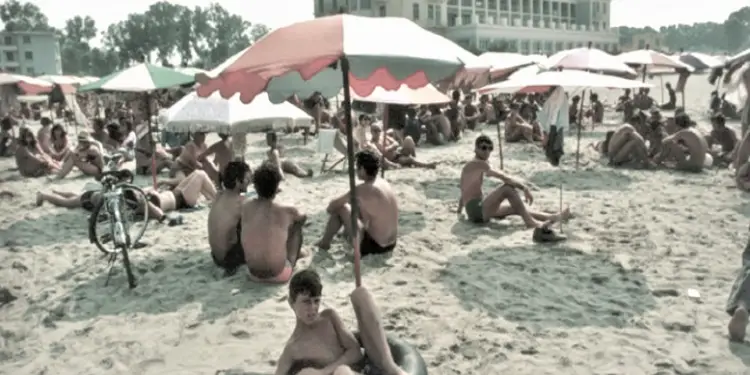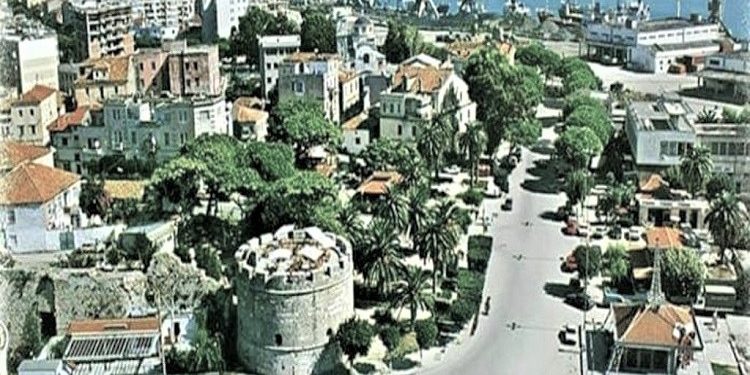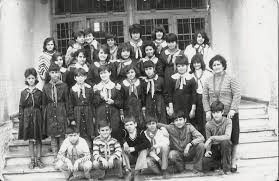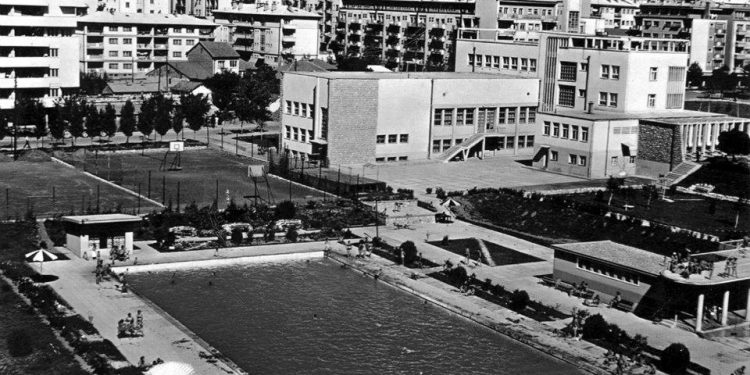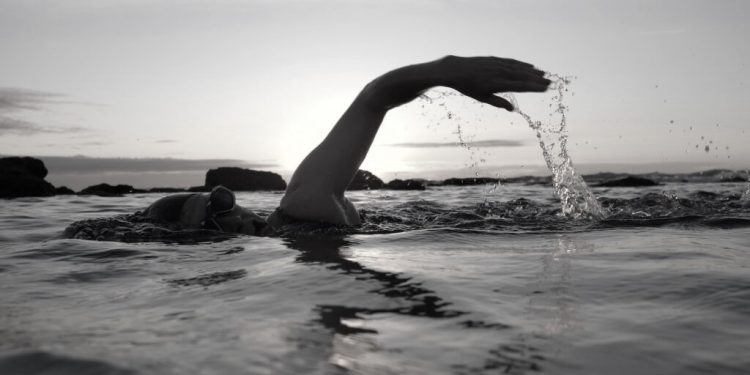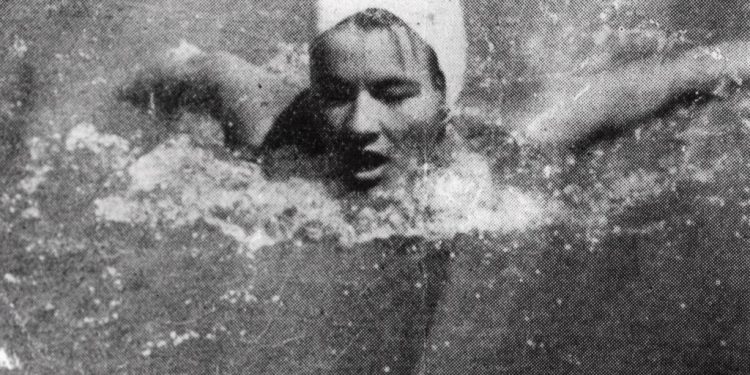From ANA XHEKA
-The arrest and imprisonment of the swimmer from Durrës, Jolanda Gila, who refused to become a spy for the Security-
Memorie.al / He have turned 70 years old, but at first glance he seems to have fewer years on his shoulders. The assessment others give her when they see her amuses her immensely and never reveals her true age. The many problems that life has given him as a “gift”, such as torture and beatings in the Durrës investigation, to accept the charge “for agitation and propaganda”, the suffering in the Kosovo prison in Lushnja, the impossibility to marry and becoming a mother, or the death of her parents, has challenged her from the memories of being a national swimming champion. The only child of the Gila family, Jolanda, experienced the whip and the caress of fate throughout her life; the mentality of the time deprived her of marriage and the pleasure of being a mother, because she was among the first women who dared to go out in a bathing suit, swimming.
The rejection of her request to serve the former State Security, cost her a harsh pursuit and persecution by this institution, until the infamous accusation of “agitation and propaganda”, an accusation which cost her 4 years of imprisonment.
Ms. Jolanda, when did you first start swimming?
I started it at the age of 13, together with my uncle’s daughter, Luçi Gila. The coach was my aunt’s son, Kristaq Bekridheli, which is why he convinced me to let me swim. We were the first group of active swimmers in the “Ylli i Quq” Sport-Club. I started with the “frog” style and immediately took part in the Balkan championship, which took place a few months later in Durrës. Swimming was and remains my passion. I practiced it until 1964.
In 1951, I completed the “Technique of Physical Culture” and at the same time was appointed a physical culture teacher at the 8-year school “29 Nëntori” in Durrës. My best result was in 1954, in the national championship, the 4 times 100 relay, where I broke the record. I ended my sports career in 1965 at the national championship held in the swimming pool of Korça, where I again set a record in 200 meters.
You have been sentenced to 6 years of imprisonment, under the charge: “for agitation and propaganda”. How did this persecution of you begin?
My active existence in Durrës had not passed without being noticed by the heads of the former Security in the city. In 1952-1953, I was called to the former Internal Branch. Jashar Kasimati calls me to the office and after giving me some compliments and mentioning the fact that I was the granddaughter of the martyr Jorgji Mali, he says: “Do you know why we called you? We want you, in parallel with the profession of physical education teacher, to cooperate with us”.
Immediately my conscience reacted and I gave him a simple, contradictory answer: I can’t do it. “We will give you three days to think before you answer us,” continued Kasimati, “but think carefully.” After three days, I appeared again at the former Internal Affairs Department and gave the same negative answer.
Under these conditions, they ask me for a written answer, and after I gave it, they started chasing and hunting me, in all forms, until they managed to charge me with agitation and propaganda. The moving shadows of spies followed me in all my sessions and classes, on my way to and from school and everywhere else.
What exactly where you accused of and how?
Everything was prepared very carefully. They had instructed the people who would testify against me. They had sent to my house, one of those I called friends, with the motivation to get a model of a dress and had photographed her in the entrance of the apartment. That way, they would use it in court to say that her testimony was true and she had been to my house. I had a notebook at home with various words and expressions of the Italian language, collected from various books, where Marxist-Leninist phrases were no exception.
I knew Italian very well, as my mother had grown up in Italy and in our house, an Italian, a friend of my father, had lived with us for many years. After everything had been carefully prepared, exactly on October 8, 1979, on the eve of the Women’s Congress to be held in Durrës, I was arrested.
This happened when I was at a friend’s house, when I had just been fired from my job, with the motivation that I had sung Italian songs somewhere. Around that afternoon, he told me that I should appear at the People’s Council of the neighborhood, because there was a positive response to my job request.
As soon as I went to the neighborhood council, they handed me an envelope and without letting me open it, they told me: Wait, someone has something to talk to you about. After a few minutes, some civilians came and asked me to board the “Gas” of the Branch, telling me that the questions would be asked to me in the Internal Branch. On the way, the investigator Ilmi R. informed me of the arrest, on the charge of “propaganda agitation”.
How did the family find out about your arrest and when were you convicted?
That day, I couldn’t tell the family. When they found out, my parents got sick because I was the only child. My father’s properties were nationalized, but after my arrest, they awaited deportation. The fact that my mother was the sister of a martyr saved my father from deportation, while I resisted the most violent beatings and torture, in the Durrës investigation. They handcuffed me and beat me until I passed out. Then they threw water on me again and asked me to accept the charge.
Twice in a row after midnight, I was brought to my cell by other prisoners, who had assumed the role of provocateur and spy, to get information from me about the connections they suspected I had with other people and my influence on them. In the conditions of my stunned state, the former investigator Ilmi R., took my hand and signed, writing himself on the record sheet, according to which I accepted the charge.
So, in 1980, I went to trial and was sentenced to 6 years in prison, escaping the second charge, according to which I presented a social danger. She served her sentence in the Kosovo prison in Lushnja, together with 250 other prisoners, some of whom were foreigners.
How do you remember the moment when you got out of prison?
In 1983, I took advantage of an amnesty and good behavior in prison. I will never forget that day. All the residents of the village of Kosova had heard about it and surrounded our fence. I heard someone shouting for joy and I didn’t know what it was. I went out and found out that a legal amnesty had been issued. In the courtyard, everyone wondered aloud which category benefited. After a while, one of the guards comes and says to me: “You, Jolanda, benefit too.”
I couldn’t believe my ears. The road to Durrës seemed to me unproductively long. At the train station, there were many people waiting for their relatives. Among the crowd I saw the mother, who was old and bent. As soon as I met him, between sobs, I asked him about me and learned that he had died during my years of imprisonment. While the mother was in trouble. He did various manual jobs to survive. After more than 10 years, we got our properties, but then my mother also passed away, leaving me all alone.
Jolanda’s sports career
“I remember the years when I was involved in sports as the happiest of my life. I remember that period with nostalgia, like a living movie script”, says Jolanda. The former national swimming record holder says that he often feels a sense of regret when he thinks about the conditions in which training and competitions took place in the 60s.
“Water surfaces in the sea, surrounded by boats with flags on them, served as pools. This was our entire infrastructure then, and despite all the difficulties, we managed to achieve national championships”, says Jolanda, adding the mentality of the time for women, who went out in public in bathing suits.
Life after the 90s
After so many years, you see Jolanda wearing pants, taking care of the color or style of her hair. The motivation to challenge loneliness is found in many other elements, which for many are unimportant. She experiences the sunrise in the morning, tastes the first coffee, every good morning she receives from the neighbors. City walks are her passion, not to mention frequent visits to other cities in Albania.
Whenever he finds the opportunity, with a desire that does not exhaust him, he tells about the happy time, when he was in the group of the first swimmers of Durrës, when, parallel to swimming, he was affirmed as one of the sopranos of the first opera “The Free Wind” “, performed at the Palace of Culture, “Aleksandër Moisiu”. Memorie.al




